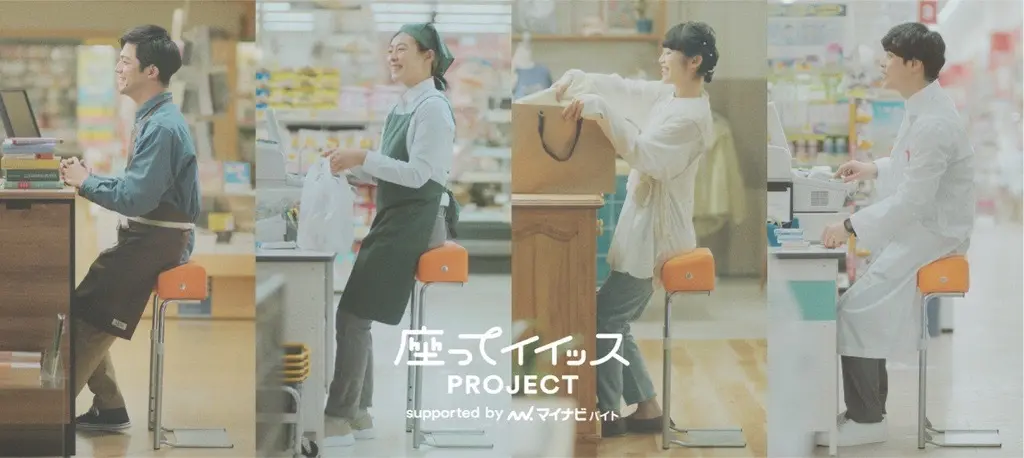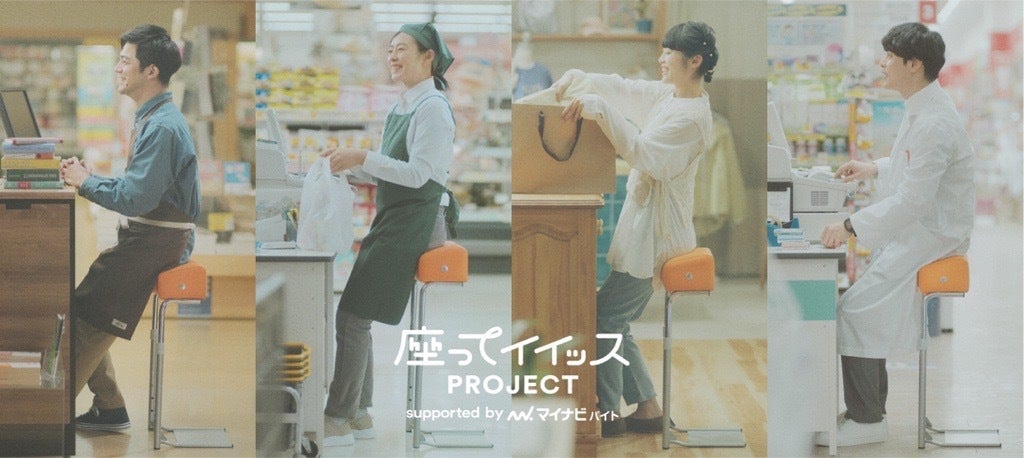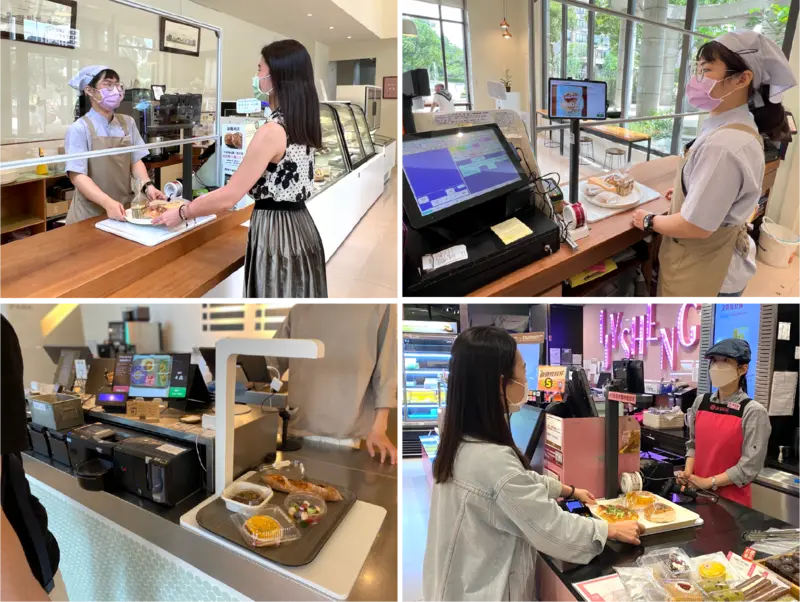
From “Sitting While Serving” to “AI Checkout,”
200 Companies Embrace Human-Centered Innovation
December 31, 2024
The retail industry is undergoing significant changes. Labor shortages, rising customer expectations, and inefficiencies in traditional workflows are forcing retailers to rethink how to attract talent, improve efficiency, and stay competitive. Innovative solutions that prioritize both employee well-being and operational effectiveness are paving the way for a more sustainable and inclusive future.
Two standout examples—Japan’s “Sitting is Okay Project” and “AI-powered checkout systems”—are redefining retail by showing how humanity and efficiency can go hand in hand. These innovations are reshaping how businesses operate today and providing a glimpse of what lies ahead for the industry.
Redefining Service: The Shift from Standing to Sitting
For years, standing service has been a cornerstone of Japan’s hospitality culture, symbolizing respect and attentiveness to customers. However, this long-standing practice has taken a physical and mental toll on workers. In 2024, the “Sitting is Okay Project” (originally “座ってイイッスPROJECT”), spearheaded by Japan’s job platform Mynavi Baito (マイナビ), challenged this tradition, introducing seating options in nearly 200 companies.
The results were transformative. Surveys revealed that 65% of part-time workers prefer having the option to sit while working, with more than 70% of employers expressing support for the change. The initiative reduced fatigue, improved job satisfaction, and made workplaces more appealing to job seekers, helping to address labor shortages and reduce turnover rates.
More importantly, this project highlighted a growing focus on creating humane work environments in retail. By enabling employees to work comfortably, it redefined the relationship between staff and customers, prioritizing well-being without compromising service quality.
Related Link: マイナビバイト『座ってイイッスPROJECT』

Empowering Retail with AI: Faster Checkouts, Happier Employees and Customers
While cultural shifts are reshaping one aspect of retail, technology is revolutionizing another. AI-powered visual checkout systems are transforming efficiency by using image recognition to instantly identify products—including unlabeled items like freshly baked goods. This eliminates the need for manual entry, significantly speeding up the checkout process and reducing employee workloads.
Adopted by over 100 bakeries and pastry shops across Japan, South Korea, Singapore, and Taiwan, these systems have improved operations in high-traffic areas like train stations and bustling shopping districts. Customers benefit from shorter wait times, while employees experience less stress, allowing them to focus on more engaging and meaningful tasks.

across Japan, South Korea, Singapore, and Taiwan (Photo by Viscovery)
Related Article: How RT Baker House Responded to Declining Birth Rate in Taiwan
Related Article: Solution to Labor Shortage: AI Helps U-o no mori Cake Shop Address Staffing Issues and Save Labor Costs
Human-Centric Innovation: Benefits for All
Whether it’s offering seated service to ease physical strain or integrating AI to simplify repetitive tasks, these innovations share a unifying principle: putting people first. By improving working conditions, businesses create environments where employees feel valued, leading to higher morale, better performance, and ultimately superior customer service—a win-win for everyone involved.
These initiatives also have long-term benefits. Supportive workplaces boost employee loyalty and help build more resilient organizations. Research shows that reducing workloads attracts a diverse range of workers, including seniors, expectant mothers, and part-timers. This inclusivity not only addresses labor shortages but also enriches businesses with fresh ideas and perspectives.
The Future of Retail: Human-Centered and Inclusive
Retail is moving beyond its traditional customer-first approach to embrace a broader focus on inclusivity and employee well-being. Innovations like Japan’s “Sitting is Okay Project” and the global rise of AI technologies are setting a new standard—one that balances operational efficiency with humanity.
These innovations aren’t just responses to today’s challenges—they’re building blocks for a better future. By blending thoughtful tradition with cutting-edge technology and compassion, retail is redefining itself as an industry where people—not just processes—truly come first.
(Featured image: Photo by PR Times)

